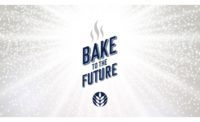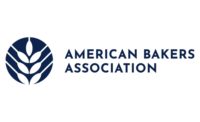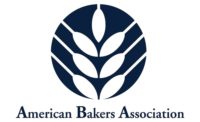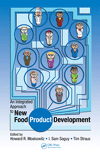The American Bakers Association (ABA) and ndp | analytics have announced The Baking Industry’s Frontline Workforce Landscape study, which examined commercial baking and supplier companies investment in frontline workforce engagement and career development as well as the support of their local communities. Delivering on a key initiative from ABA’s Strategic Plan to promote and grow the baking industry, this new study provides important data that reinforces the baking industry’s role as an essential manufacturing employer.
The key findings are downloadable here.
Growth opportunities for frontline employees
The study found that entry-level frontline workers in the commercial baking industry can have opportunities to grow into leadership positions within their companies. Most companies reported that, in 2019, at least one in every four frontline supervisors or managers were promoted from within (66 percent). This was even more common at companies with career paths (78 percent).
Committed to their workforce, industry companies also invest in the training and development of their frontline employees. In 2019, 39 percent of companies spent $1,000 or more per worker on training while 61 percent spent less than $1,000 per worker. For comparison, the manufacturing and distribution sector overall spent an average of $672 per learner on training in 2019.1 Additionally, in 2019, 76 percent of companies had recognition programs designed to recognize and reward workers for their achievements, and over 80% of companies involved frontline workers in safety programs and best practice management.
Military veterans and the baking industry
The commercial baking industry also offers frontline career opportunities which are well positioned for veterans. Manufacturing employs more veterans than any other private sector industry and veterans are more likely to work production, transportation, and maintenance jobs.2 The study found over 3,000 veterans were employed in baking industry frontline careers in 2019. For those companies with veteran-specific programs, the most common types were recruitment and training.&
Providing social and economic benefits to the country
In addition to creating career opportunities for frontline workers, the study found the baking industry is committed to supporting communities and reducing its environmental footprint. In 2019, 70 percent of companies donated food, 75 percent donated money, 67 percent volunteered, and 43 ABA member facilities were recognized as 2019 Energy Star certified manufacturing plants. Companies donated over 26 million pounds of food, gave nearly $7 million to charities and local organizations and volunteered nearly 31,000 hours. These contributions only account for a subset of the industry.
The commercial baking industry is engaged and supports its local communities and its frontline workers. As an essential manufacturing employer, the baking industry has thousands of frontline career opportunities available today. The industry’s job board is BakingWorks.org.
The Baking Industry’s Frontline Landscape study was produced jointly by the American Bakers Association and ndp | analytics as a resource for ABA Members.
[1] Excludes payroll expenses. ndp | analytics and Training Magazine. 2019. “2019 Training Industry Report.” November 6.
[2] BLS. 2020. Employed persons 18 years and over by occupation, sex, veteran status, and period of service.










